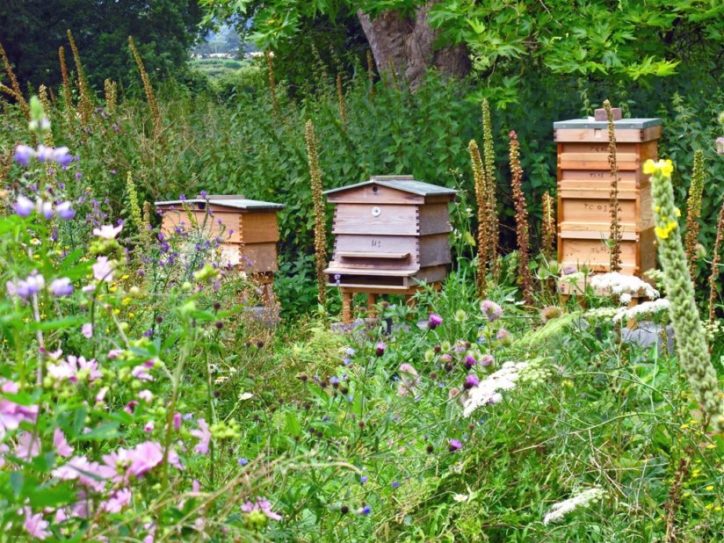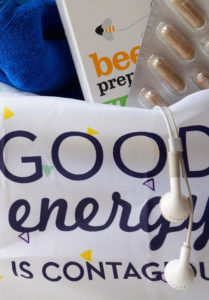
24 Mar How to manage hay fever naturally
One of the best ways to help minimise the effects of hayfever and allergies is to make sure that your immune system is in top working order, according to nutritionists and allergy experts. To help manage hay fever naturally, eating healthily & supplementing your diet with nutrients which boost the bodies natural defences can help minimise symptoms.
Bee Prepared immune support with bee propolis and more is ideal not only for helping boost immunity BUT its ingredients are bursting with natural anti-histamine properties. Elderberry, for instance, is loaded with quercetin, a top natural remedy for hay fever.
Here’s an interesting article by nutritionist Erin McCann (published in Natural Pharmacy Magazine):
Seasonal allergies affect millions of people in the UK each year with aggravating symptoms such as sneezing, itchy and watery eyes, running nose, and itchy skin. These hay fever symptoms are the result of the immune system’s reaction to harmless pollen particles in the same way it would respond to harmful antigens. In this immune response, immunoglobulin E antibodies (IgE) detect the pollen ‘antigens’ and activate mast cells and T helper cells (specifically type 2 or Th2 cells). The increase of Th2 cells and the mast cell histamine release in the mucosa and peripheral blood result in inflammation, hay fever symptoms and atopic conditions.
Conventionally, hay fever is managed by using anti-histamine drugs to reduce symptoms. However, to manage hay fever naturally, a more holistic and curative approach is needed to modulate the immune system, reduce the histamine response and to focus on reducing inflammation. Certain nutrients and natural remedies can be helpful in achieving these therapeutic goals and in creating a long term, effective treatment for hay fever and other atopic conditions.
Black Elderberry has been used medicinally for centuries in the UK and in Europe. Black elderberry is widely known for its effective use in treating viral infections. Elderberry is also rich in Vitamin C and the bioflavonoid quercetin, both of which are powerful antioxidant and anti-histamine nutrients. These actions can help to reduce mast cell histamine response and reduce mucosa inflammation. Recent clinical studies have found elderberry effective at treating allergic sinusitis and rhinitis.
Reishi mushroom has been used historically as an immune tonic in Traditional Chinese Medicine. Scientific researchers in the western world are now beginning to understand the active constituents that are responsible for the mushroom’s immune supporting actions. Reishi contains the bioflavonoid triterpene which inhibits histamine release. It also contains oleic acid and cyclooctasulphur compound which have antihistamine actions. In addition to these anti-allergic actions, reishi contains antioxidant and anti-inflammatory phytonutrients which may be helpful in reducing hay fever symptoms.
Astaxanthin is a carotenoid found naturally in algae. Studies have shown that astaxanthin is effective in modulating the immune system, specifically siting its role in balancing the Th1 and Th2 cells. By rebalancing these T helper cells, astaxanthin aids in reducing the hypersensitivity to pollen allergens. Astaxanthin is also a potent antioxidant and anti-inflammatory nutrient. These actions may help to reduce the symptoms related to the inflammation of the mucosa.
Bee propolis contains a broad spectrum of vitamins, minerals and phytonutrients. Bee propolis also has significant immunomodulating and anti-inflammatory actions. Propolis is one of nature’s most potent anti-oxidant substances, exceeding Vitamin E in anti-oxidant actions. Bee Propolis also has been found to effectively modulate the immune system without over stimulating it. The combination of these actions may be helpful in creating a long term treatment for hay fever.
When treating hay fever naturally, it is best to start supporting the individual’s immune system a few months before allergy season. By starting natural therapies in advance, it enables the remedies to aid in modulating the immune system and to regulate histamine responses before the reactions are acute and heightened with pollen exposure. For best results, try to begin natural therapies for hay fever during the winter months leading up to the spring allergy season.
A great natural product range for your shelves, which combines all of the above ingredients & more is BEE Prepared immune support.. It’s a medicine cabinet staple & great year round immune boosting supplement.
Erin McCann NT mBANT
Nutritional Consultant
Being-Balanced.com




